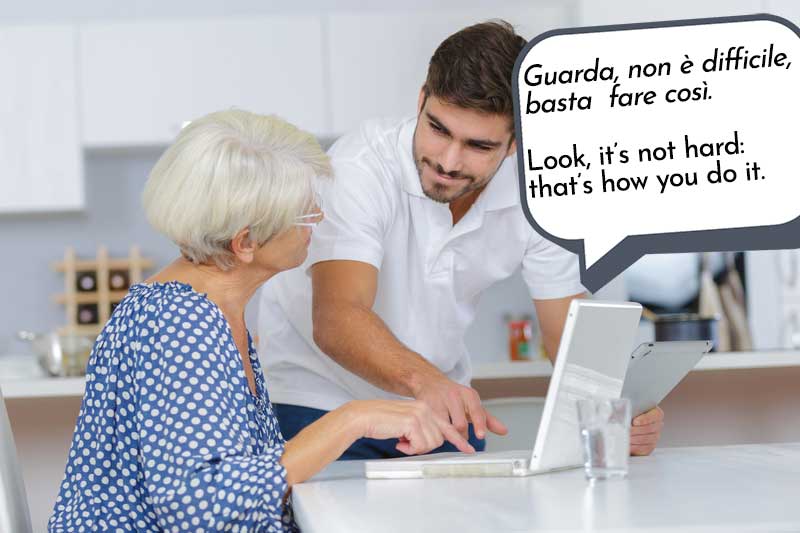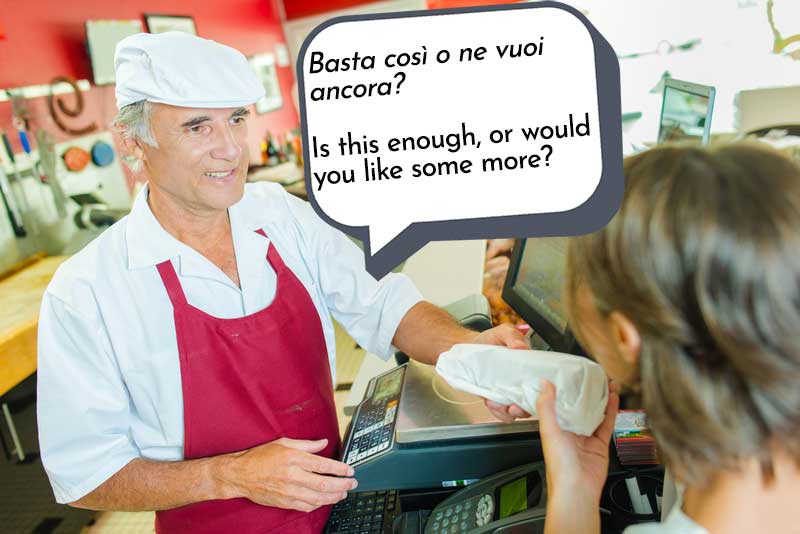Basta (bah.stah) is one of those words that change their meaning depending on the voice intonation you choose. A peremptory “Basta!” is a strong order one cannot refuse to follow, while a softer, questioning “Basta?” is as gentle as a feather on the skin and is usually used to ask if you have enough of something : basta così (“is this enough?”) is the most common sentence accompanying the spooning of food into your plate on any given Italian day.
The etymology of basta is unknown, although some think it may come from the Greek bastàzein, that means “to bear.” When used on its own, basta is considered a performative exclamation, so strong it imposes the end of whichever activity we are carrying out. But it’s not always like that.
Literally, basta means “enough” and just like enough it mostly works. So just like “enough!” and “that’s enough” imply the immediate ending of whatever we are doing, so do basta! and adesso basta!
But switch that exclamation mark into a question mark and things change quite a bit.
Basta? or basta così? are usually uttered while doing something pleasant, from filling someone’s plate with delicious grub, to pouring tea in a cup, or giving your significant other a back rub.
We also find basta in common expressions like basta poco (“every little helps,” or “you only need this much”), or basta fare così (“that’s how you do it”) where, again, basta looses that menacing tone given by the exclamation mark, to keep a softer, more welcoming and friendly face.

Ragazzi basta! State facendo troppo rumore!
That’s enough guys! You’re too noisy!

Basta così o ne vuoi ancora?
Is this enough, or would you like some more?

Guarda, non è difficile, basta fare così.
Look, it’s not hard: that’s how you do it.






























